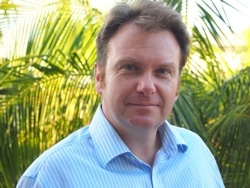The old ways of doing business are dead and buried. The traditional goal of minimising expenses and maximising revenue to grow profits at any cost now seems like a quaint idea from a bygone area.
The business leaders of today, and tomorrow, must have the skills, experience and knowledge to deal with the impact their business has across a range of areas. Social impacts, environmental sustainability and governance are the new cogs that drive business performance.
At Griffith University, corporate social responsibility (CSR) has become more than a subject; it has been cemented into all aspects of their MBA program to ensure graduates are able to assess and take responsibility for a business’ effects on environmental and social wellbeing.
While there are many MBA programs that exist with a CSR element, they typically appear in the form of a single unit.

Griffith University MBA Director, Associate Professor Chris Fleming, said the Queensland-based Griffith had operated to a higher bar for many years.
“The whole idea of sustainable business practices has been part of Griffith University’s DNA since day one, and a headline value of Griffith’s Business School,” Assoc. Professor Fleming said.
He said Griffith’s MBA program had been re-built from the ground up in recent years, beginning with a new course on sustainability and systems thinking which students would take early on in their program.
The university then went through the MBA program’s entire syllabus, challenging their unit conveners to incorporate responsible leadership and sustainable business practices throughout every discipline.
“The world has seen the financial crisis, the Occupy movement, rising inequality, climate change, social pressures and poverty,” Assoc. Professor Fleming said. “So we decided to rebuild the MBA from the ground up to be true to our core values surrounding responsible leadership and sustainable business practices.”
By integrating CSR into every aspect of Griffith’s MBA program, Assoc. Professor Fleming said Griffith won’t just be producing exclusively-trained CSR leaders, but MBA-accredited leaders who all approach the world of business with a strong CSR foundation.
“We aren’t just trying to create sustainability managers as a small niche,” he said. “This is about breeding general managers and entrepreneurs who run normal businesses in a way that keeps them thinking about their broader responsibilities.”
Accounting courses at Griffith, for example, focus on more than teaching the traditionally required knowledge of cash flow and financials.
The courses also have a strong focus on integrated reporting or ‘triple bottom line’, which teaches MBA students that accountants and accounting firms in the real world are often responsible for reporting progress against a number different of measures; not just the financial, but also in terms of impacts on society and the environment.
“In economics, we teach students the normal stuff like the theory of the firm, how markets work, but then we talk about how markets don’t work,” he said.
“We answer questions like, ‘what happens when the activity of a firm has a spill-over effect, or a negative environmental or social effect on the people around it, and what are the economic instruments we can use to correct the problem’?
“In strategy and managerial problem solving, we focus strongly on the principal that firms have a responsibility to shareholders, but also to their staff, to their supply chain and ultimately to the community in which they live.”
“Therefore, it is an idea that there cannot be just some 1980s model of profit maximisation at all costs, because they’re not the leaders we need in the 21st century,” he said.
Assoc. Professor Fleming said that in today’s society, with social media and new technology, businesses are held more accountable by the community, which puts an onus on businesses to prioritise their social responsibilities.
Griffith have acknowledged that the business world faces a slew of challenges, some old and ever-present, and others that have appeared as a result of evolving business practices.
Current challenges include climate change and environmental impact, as well as the increasing wealth inequality.
But there are also opportunities in the business world – Fleming identified ‘deconstructed business models’ where companies open the door for mini-entrepreneurship, like Uber or Airbnb.
“It’s really about looking at them as opportunities rather than problems; the philosophy we try to instill is ‘this is where all the opportunities are’,” he said.
“We are trying to create business people, leaders and entrepreneurs that are part of the solution, not part of the problem. And so this way of thinking is infused throughout all of our courses, and not just specialised classes.”
Visit Griffith University to learn more about their 100% online MBA.










